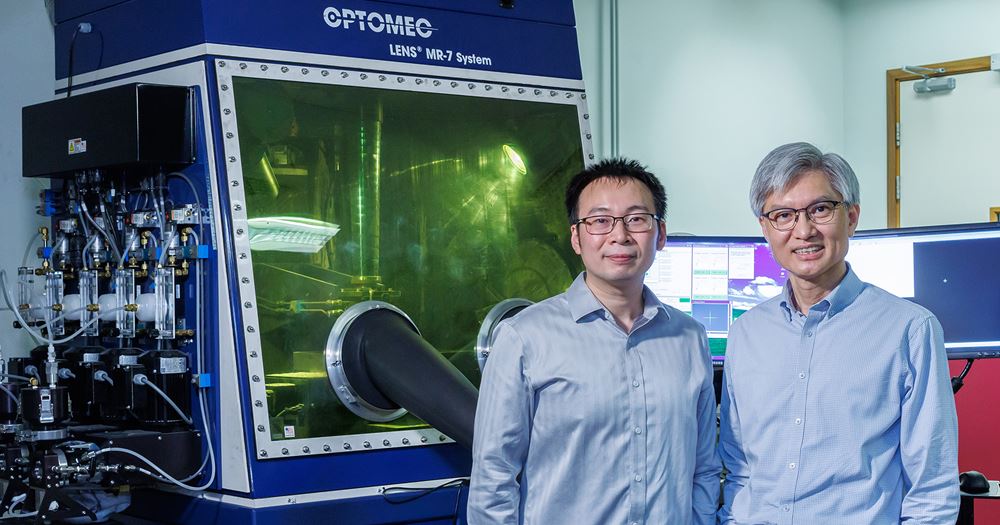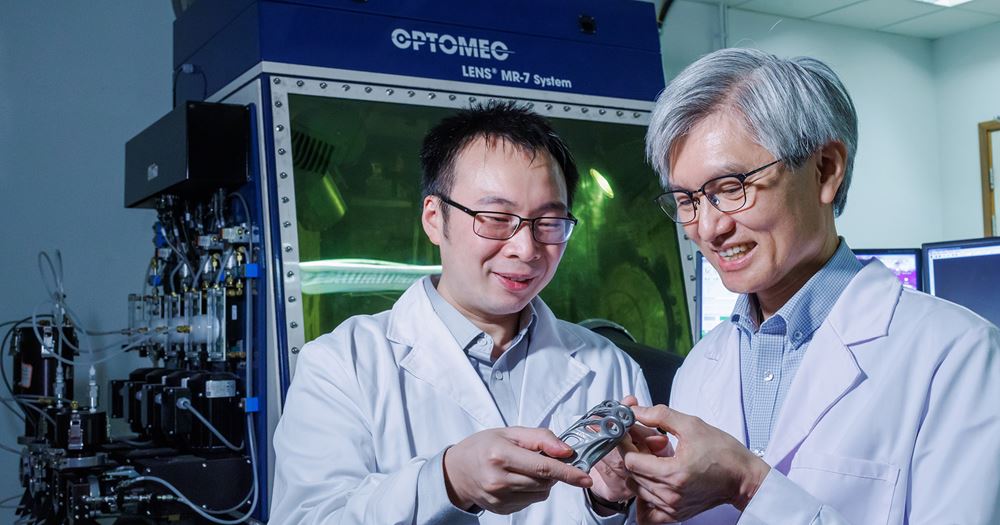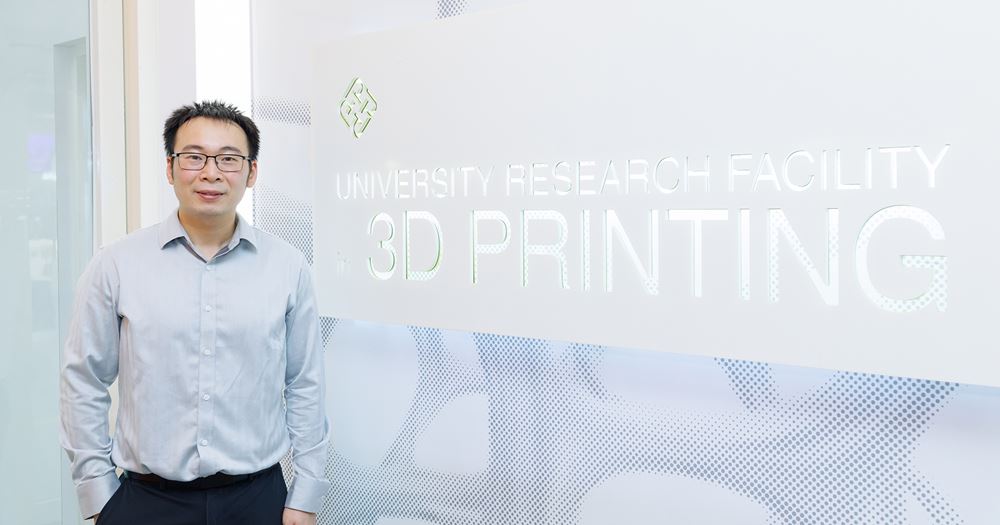PolyU researchers collaboratively develop high-performance titanium alloys through additive manufacturing
24 Jul 2023
The industrial production of titanium alloys has always been plagued by challenges associated with quality and waste management. Engineering scientists from the Hong Kong Polytechnic University (PolyU), in collaboration with RMIT University and the University of Sydney, have successfully used additive manufacturing, also known as 3D printing, to solve these long-standing issues in titanium alloy production. The research study, titled “Strong and ductile titanium-oxygen-iron alloys by additive manufacturing”, was recently published in Nature.
Titanium alloys are advanced lightweight materials that play an indispensable role in many critical applications. The research team’s discovery of the innovative use of additive manufacturing for the production of titanium alloys and potentially other metal materials offers numerous advantages, such as reduced costs, improved performance, and sustainable waste management.
Through the use of 3D printing, the research team has produced a new strong, ductile, and sustainable titanium alloy (α–β Ti-O-Fe alloy). These properties are achieved through the incorporation of inexpensive and abundant oxygen and iron, which are the two most powerful stabilising elements and strengtheners for α–β phase titanium alloys. The new titanium alloy exhibits immense potential for diverse applications, ranging from aerospace and marine engineering to consumer electronics and biomedical devices.
Compared with the Ti-6AI-4V benchmark material, which has been widely used since its formulation in 1954, the new titanium alloy produced by the research team demonstrates better mechanical performance, with comparable ductility and considerably higher strength.
Although traditional manufacturing methods, such as casting, can also be used to produce the new titanium alloy, the poor properties of the resulting material may render it unsuitable for practical engineering. Additive manufacturing effectively overcomes the limitations of traditional methods to improve alloy properties.
The energy-intensive Kroll process, typically used to produce titanium alloys, generates off-grade sponge titanium, which accounts for approximately 10% of all sponge titanium, resulting in substantial waste and increased production costs. Additive manufacturing effectively addresses this problem by enabling the recycling of off-grade sponge titanium, converting the waste into powder for use as raw material.
Dr Zibin CHEN, Assistant Professor of the Department of Industrial and Systems Engineering at PolyU, an awardee of the Young Innovative Researcher Award 2022 and a leading author of the research, stated, “Our work can facilitate the recycling of more than 10% of the waste generated by the metal alloy production industry. This can significantly lower both material and energy costs for industries, contributing to environmental sustainability and carbon footprint reduction.”
The research integrates alloy design, computational simulations, and experimental characterisation to explore the additive manufacturing process-microstructure-property space for the new titanium alloy (α–β Ti-O-Fe alloy).
The study highlights that additive manufacturing enables the one-step production of complex and functional metal parts, thereby accelerating product development with reduced costs. Additionally, it can be used to fabricate metal parts with unique structures and compositions, which cannot be achieved using traditional methods.
In terms of quality improvement, additive manufacturing allows for the adjustment of the microstructure of metal alloys, resulting in increased strength, flexibility, and resistance to corrosion and water. Furthermore, lightweight but strong metal parts with intricate internal patterns can be manufactured. This research breakthrough opens up possibilities for holistic and sustainable material design strategies facilitated by 3D printing.
Prof. Keith K.C. CHAN, Chair Professor of Manufacturing Engineering at the Department of Industrial and Systems Engineering at PolyU and a co-author of the study, noted, “This work can serve as a model or benchmark for other metal alloys that use 3D printing to enhance their properties and expand their applicability. Metal 3D printing is an emerging field, and it will take time before it is widely adopted in materials manufacturing.”
***END***
Press Contacts
Ms Iris Lai
Manager, Research and Innovation Office
- 3400 2492
- syiris.lai@polyu.edu.hk
Press Contacts
Ms Annie Wong
Senior Manager, Communications and Public Affairs
- 3400 3853
- anniewy.wong@polyu.edu.hk
You may also like














